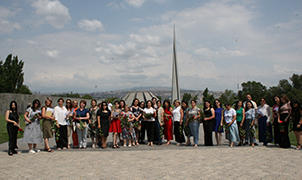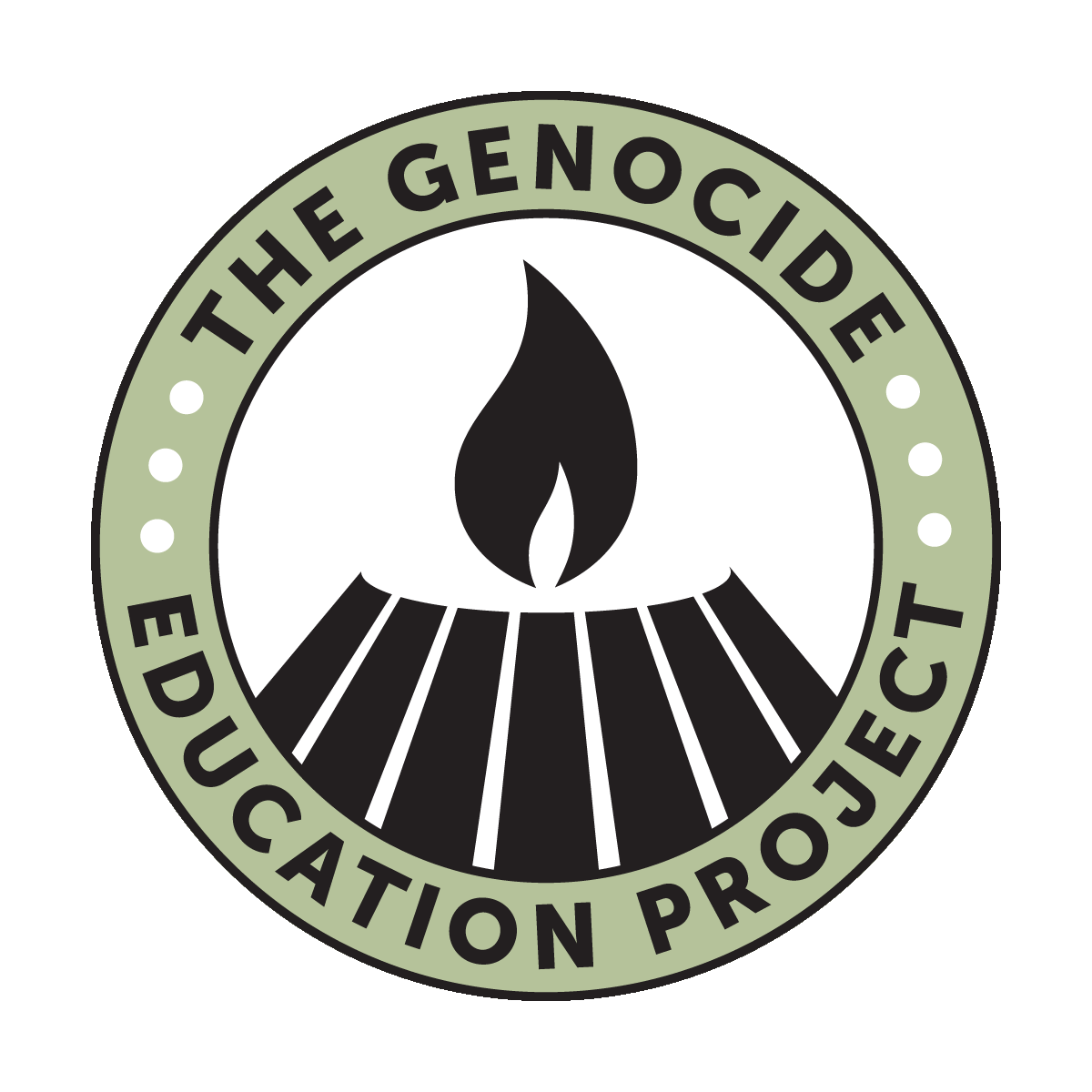19.07.2024

From July 16 to 18, the Armenian Genocide Museum-Institute (AGMI) hosted its sixth annual summer school, "Teaching the Armenian Genocide," for history teachers. Approximately 40 teachers from Yerevan and surrounding regions, specializing in "Armenian History" and "Social Sciences," participated in the three-day event.
AGMI Director Edita Gzoyan and Educational Programs Department Head Inessa Stepanyan welcomed the participants. Roxanne Makasdjian, Head of the American GenEd organization, gave a brief introduction to the organization. American teachers Kerry Flynn and Kristina Shiranian, members of GenEd, shared their experiences teaching the Armenian Genocide.
Director Gzoyan highlighted the Armenian Genocide's significance as an international crime and its impact on the 1948 UN Convention on Genocide. AGMI researchers Regina Galustyan, Gurgen Muradyan, and Dr. Suren Manukyan delivered lectures on various aspects of the Armenian Genocide, including ruling ideologies in the Ottoman Empire and the importance of context in historical studies. Narek Manukyan, co-founder of Paradigma Educational Foundation, discussed the use of source materials in teaching history.
The day concluded with a visit to the Armenian Genocide Museum and a tour of the temporary exhibition, "Armenian Woman: Victim and Heroine of the Armenian Genocide."
On the second day of the summer school, participants attended several noteworthy lectures and discussions. Narek Poghosyan, a researcher at AGMI, spoke about Raphael Lemkin, the jurist who coined the term "genocide," and emphasized the Armenian Genocide's role in shaping this concept. Tehmine Martoyan followed with a discussion on the genocide of other Christian communities in the Ottoman Empire, focusing on the Greeks. Gohar Khanumyan, head of the Museum Collections Department, presented on the "Nemesis" operation in history textbooks, highlighting existing shortcomings.
Margaret Karapetyan, a teacher at Talin High School and a previous summer school participant, shared her experience teaching "Armenian Genocide Issues," a course she developed with AGMI and approved by Armenia's Ministry of Education. Dr. Harutyun Marutyan then discussed the significance of resistance during the Armenian Genocide in preserving its memory, followed by Narine Margaryan's lecture on the importance of memoirs as educational sources.
Inessa Stepanyan demonstrated how to use the IWitness website from the Shoah Foundation to teach about genocide, while Ani Manukyan discussed her project "Discover the History of Your Family" and the competition "Root and Sprout," which encourages students to explore their heritage.
On the third day, AGMI researcher Gayane Hovhannisyan opened with a lecture on ethnic cleansing policies in Armenian-populated regions of Soviet Azerbaijan during 1988-1991. Shushan Khachatryan then explored the role of religion in fostering hatred against Armenians in the Ottoman Empire and the ritualization of violence during the Armenian Genocide. Psychologists Sose Asatryan and Marianna Gevorgyan addressed the psychological effects of war and displacement, while Zohrab Gevorgyan from the American University of Armenia led a discussion on the ethics of teaching genocide history. The day concluded with a presentation by Arevik Avetisyan and Mariam Khachatryan on using the "Ashkharhatsuyts" educational platform to teach the history of the Armenian Genocide.
During the three-day summer school, teachers completed training evaluation questionnaires, offering valuable insights to improve future courses. Upon completion of the program, AGMI Director Edita Gzoyan delivered a concluding speech, expressing gratitude to the teachers for their active participation. She expressed hope that the educators would apply their newly acquired knowledge and skills not only within the "Armenian History" or "Social Studies" subjects but also by taking the initiative to teach the "Armenian Genocide Issues" course in their schools. Gzoyan mentioned that the next step would be the creation of a course manual to further support this initiative.
Inessa Stepanyan also congratulated the teachers, thanked them for their participation, and expressed confidence in the ongoing connection between the educators and AGMI. Following their speeches, Mrs. Gzoyan and Mrs. Stepanyan presented certificates and books to the teachers.
The program concluded with a visit to the Armenian Genocide Memorial. The participants laid flowers at the eternal flame and observed a moment of silence in memory of the 1.5 million innocent victims of the Armenian Genocide.





